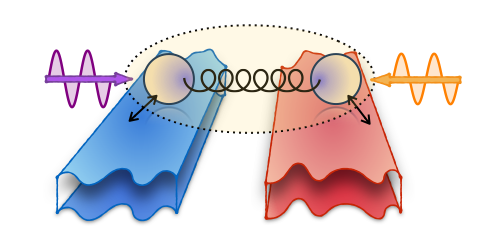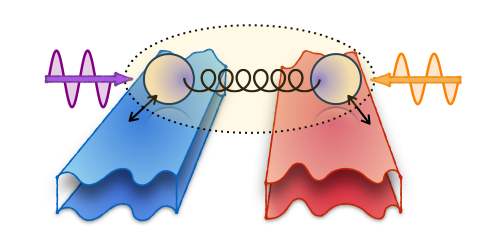Second Law in an Optical Cavity and a BEC
In the continuum from quantum to classical, there exists a paradox. Classical machines like heaters cannot run in reverse—and effectively act as refrigerators—without extra energy. Such a scenario would violate the second law of thermodynamics, which states that entropy must always increase. In contrast, the equations of quantum mechanics imply that quantum processes can run in reverse. Currently, researchers are unclear on how to reconcile the two frameworks. To that end, Matteo Brunelli of the University of Cambridge in the UK and colleagues experimentally studied two intermediate-scale quantum systems—a Bose-Einstein condensate made of 100,000 rubidium atoms and an optomechanical cavity weighing less than a millionth of a gram. They placed each system in contact with two heat reservoirs. In both cases, they found that entropy increased as energy flowed in and out of the system. The result indicates that intermediate-scale quantum systems behave irreversibly, like classical machines.
Because entropy production cannot be directly measured, the team first developed a theoretical framework to calculate entropy from energy. Then they used this framework to infer entropy production resulting from the energy exchange between the BEC and two heat reservoirs and between the cavity and two reservoirs. Measuring the energies of the two systems, they found that the entropy increased in both. The team studied these two systems because they both mathematically resemble coupled quantum harmonic oscillators in contact with two heat reservoirs. The team says that, in the future, they plan to monitor the entropy of both systems with finer time resolution in order to observe the systems as they approach steady state.
This research is published in Physical Review Letters.
–Sophia Chen
Sophia Chen is a freelance science writer based in Tucson, Arizona.





